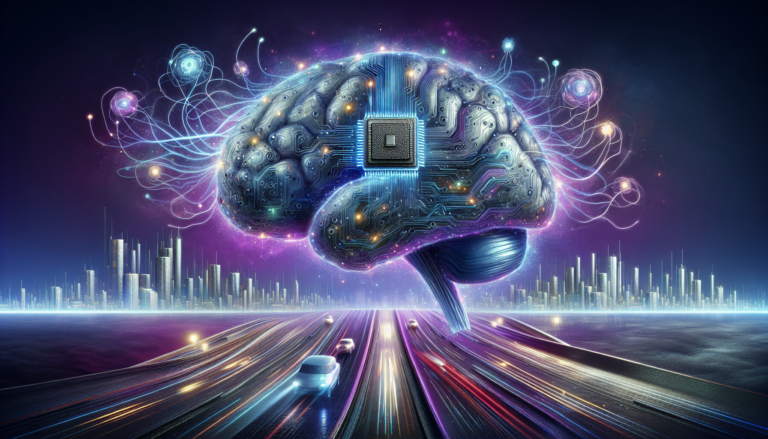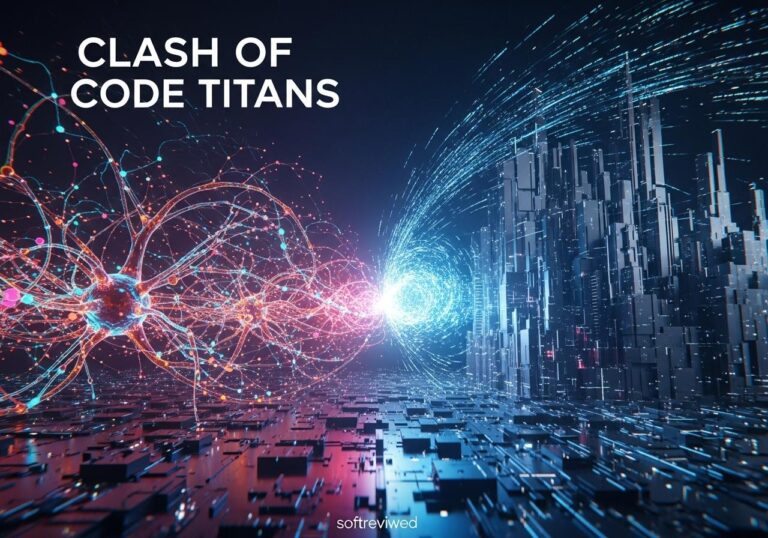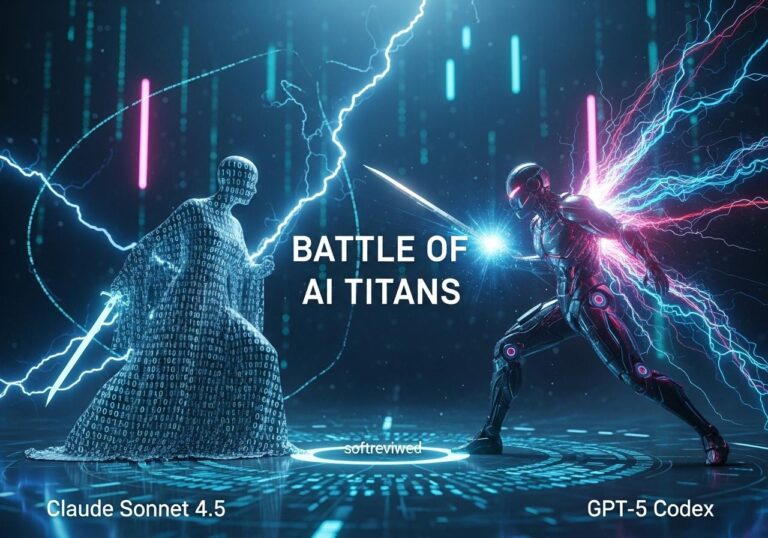🧠 Advancements in Brain-Computer Interfaces (BCIs)
Exploring the cutting-edge developments in BCI technology and their potential applications.
🔬 Historical Context
Early experiments in the 1960s and 1980s laid the foundation for AI-driven innovations in BCIs.
🚀 Current Innovations
Companies like Neuralink, Bitbrain, and NextMind are developing implantable BMI devices, wearable sensors, and mind-controlled tools.
🏥 Healthcare Applications
BCIs show promise in paralysis recovery with prosthetics and treating conditions like Alzheimer’s and Parkinson’s.
🎨 Beyond Medical Use
BCIs are exploring the potential to translate visual imagination into digital signals, opening new frontiers in creativity and communication.
🔮 Future Potential
Research is focused on developing less invasive methods for capturing brain signals and improving accuracy in mental state classification and image recreation from EEG signals.
🤝 AI and Human Collaboration
The future of BCIs lies in balancing AI efficiency with human creativity, integrating AI-generated insights with human storytelling and interpretation.
How Does Claude’s New Analysis Tool Enhance AI-Powered Brain-Computer Interfaces?
Claude’s analysis tool revolutionizes AI-powered brain-computer interfaces by providing real-time data insights. This innovative technology enhances the accuracy of neural signal interpretation, enabling smoother user interactions. As a result, individuals can experience improved responsiveness and functionality, paving the way for groundbreaking advancements in communication and control.
The Rise of AI-Powered Brain-Computer Interfaces

Imagine controlling your computer, smartphone, or even your smart home devices with just your thoughts. This might sound like science fiction, but thanks to recent advancements in artificial intelligence (AI) and neurotechnology, it's rapidly becoming a reality. AI-powered brain-computer interfaces (BCIs) are at the forefront of this technological revolution, promising to fundamentally change how we interact with machines and potentially improve the lives of millions.
What Are AI-Powered Brain-Computer Interfaces?
AI-powered brain-computer interfaces are sophisticated systems that allow direct communication between the human brain and external devices. These interfaces use a combination of implantable chips, AI algorithms, and data analysis to interpret brain signals and translate them into commands for various devices.
The key components of AI-powered BCIs include:
- Implantable Chips: Surgically implanted in the brain to detect neuron activity.
- AI Algorithms: Process the detected signals to interpret the user's intentions.
- Data Analysis: Analyzes the processed data to control devices or provide feedback.
The Potential Applications of AI-Powered BCIs
The applications of AI-powered BCIs are vast and varied, spanning multiple industries and sectors:
Healthcare
In the medical field, AI-powered BCIs hold immense promise for individuals with disabilities or neurological disorders. These interfaces could potentially:
- Help paralyzed individuals regain control of their limbs
- Restore communication abilities for those with speech impairments
- Assist in the treatment of neurological conditions like Parkinson's disease or epilepsy
According to the National Institute of Neurological Disorders and Stroke, approximately 25% of individuals with paralysis could potentially benefit from AI-powered BCIs.
Gaming and Entertainment
The gaming industry stands to be significantly impacted by AI-powered BCIs. These interfaces could:
- Allow gamers to control in-game actions with their thoughts
- Create more immersive and responsive virtual reality experiences
- Enable new forms of interactive entertainment
A recent study by VentureBeat found that 30% of gamers have expressed interest in using AI-powered BCIs for gaming.
Military and Defense
While controversial, the military sector is also exploring the potential of AI-powered BCIs for:
- Enhanced soldier performance and communication
- Remote control of military equipment
- Improved situational awareness on the battlefield
Recent Breakthroughs in AI-Powered BCI Technology
Several major technology companies and research institutions have made significant strides in developing AI-powered BCIs:
Neuralink's Advancements
Neuralink, a neurotechnology company founded by Elon Musk, has reported substantial progress in developing implantable chips that can read brain signals with high accuracy. According to a recent press release, their latest chip can detect and interpret thousands of neurons simultaneously, paving the way for more sophisticated BCI applications.
Improvements in Neuron Reading and Signal Processing
Researchers have made significant advancements in using AI algorithms to improve the accuracy of neuron reading and signal processing in BCIs. These improvements have opened up possibilities for more complex interfaces and new applications, as reported in a recent study published in ScienceDirect.
The Benefits of AI-Powered BCIs
AI-powered brain-computer interfaces offer several potential benefits:
Enhanced Accessibility: For individuals with disabilities, AI-powered BCIs could provide new means of interaction and communication, significantly improving their quality of life.
Improved Medical Treatments: These interfaces could lead to more effective treatments for neurological disorders and injuries.
Advanced Human-Machine Interaction: AI-powered BCIs could revolutionize how we interact with technology, making our devices more intuitive and responsive.
- Cognitive Enhancement: Some researchers believe that BCIs could potentially enhance cognitive abilities, such as memory and focus.
Challenges and Concerns
Despite their potential benefits, AI-powered BCIs also raise several concerns and challenges:
Data Privacy and Security
One of the most significant concerns surrounding AI-powered BCIs is data privacy. These devices have access to our most personal data – our thoughts and brain activity. Ensuring the security and privacy of this data is crucial.
Ethical Considerations
The use of AI-powered BCIs raises several ethical questions:
- Should there be limits on how these devices can be used?
- What are the implications of using BCIs for cognitive enhancement?
- How do we ensure equitable access to this technology?
Technical Challenges
Developing reliable and accurate AI-powered BCIs presents numerous technical challenges:
- Improving the longevity and biocompatibility of implantable devices
- Enhancing the accuracy of signal interpretation
- Miniaturizing the technology for practical use
The Future of AI-Powered BCIs
As technology continues to advance, the potential applications of AI-powered BCIs are likely to expand. Some potential future developments include:
Seamless Human-AI Collaboration: BCIs could enable more natural and intuitive collaboration between humans and AI systems.
Brain-to-Brain Communication: Some researchers envision a future where BCIs could enable direct brain-to-brain communication between individuals.
Enhanced Learning and Skill Acquisition: BCIs might be used to accelerate learning processes and skill acquisition.
- Treatment of Mental Health Disorders: Advanced BCIs could potentially offer new treatment options for mental health conditions like depression or anxiety.
Expert Opinions
Experts in the field have varying opinions on the potential of AI-powered BCIs:
"The potential for AI-powered BCIs to change the lives of individuals with disabilities is immense." – Dr. Jason Chang, Neuralink Researcher
"While the technology is promising, we must carefully consider the ethical implications of directly interfacing with the human brain." – Dr. Sarah Miller, Bioethicist
Conclusion
AI-powered brain-computer interfaces represent a fascinating convergence of neuroscience, artificial intelligence, and computer engineering. While still in their early stages, these technologies have the potential to revolutionize how we interact with machines and possibly even enhance human capabilities. By leveraging advances in AI, such as AlphaFold 3 protein structure prediction, researchers could also gain deeper insights into the complexities of brain functions and neural pathways. Integrating these breakthroughs with brain-computer interfaces could open the door to new medical treatments, cognitive enhancements, and even direct thought-controlled interactions with devices. Ultimately, the fusion of AI-driven tools and neuroscience holds immense promise for both human health and technological progress.
However, as we move forward with the development of AI-powered BCIs, it's crucial that we carefully consider the ethical, privacy, and security implications. Striking the right balance between technological advancement and responsible development will be key to harnessing the full potential of this groundbreaking technology.
As research in this field continues to progress, we can expect to see more breakthroughs and applications emerge, potentially reshaping various aspects of our lives and society as a whole. The future of AI-powered BCIs is both exciting and challenging, promising a new era of human-machine interaction while also raising important questions about the nature of that interaction and its implications for humanity.
Frequently Asked Questions
Q: Are AI-powered brain-computer interfaces currently available for consumer use?
A: While there are some consumer-grade EEG devices available, fully-fledged AI-powered BCIs with implantable chips are still in the research and development phase and not yet available for general consumer use.
Q: How accurate are current AI-powered BCIs in interpreting brain signals?
A: The accuracy of AI-powered BCIs has improved significantly in recent years. However, the exact accuracy can vary depending on the specific technology and application. Research-grade BCIs can achieve high levels of accuracy for certain tasks, but there's still room for improvement, especially for more complex applications.
Q: What are the potential risks of using AI-powered BCIs?
A: Some potential risks include:
- Data privacy and security concerns
- Potential for misuse or unauthorized access to brain data
- Unknown long-term effects of implanted devices on brain health
- Ethical concerns about cognitive enhancement and equitable access
Q: How long might it take for AI-powered BCIs to become widely available?
A: It's difficult to predict an exact timeline, as it depends on various factors including technological advancements, regulatory approvals, and public acceptance. However, many experts believe that more advanced AI-powered BCIs could become available for medical applications within the next 5-10 years, with wider consumer applications potentially following in the decades after.
Q: Can AI-powered BCIs read thoughts or memories?
A: Current AI-powered BCIs cannot read specific thoughts or memories. They can detect and interpret certain types of brain activity, which can be translated into commands or actions. The ability to read complex thoughts or memories is still in the realm of science fiction and would require significant technological advancements.
As we continue to explore the possibilities of AI-powered brain-computer interfaces, it's clear that this technology has the potential to significantly impact various aspects of our lives. From healthcare to entertainment, the applications are vast and varied. However, as with any emerging technology, it's crucial that we approach its development and implementation with careful consideration of the ethical, privacy, and security implications. The future of AI-powered BCIs is bright, but it requires responsible development and thoughtful regulation to ensure that its benefits are maximized while potential risks are minimized.







